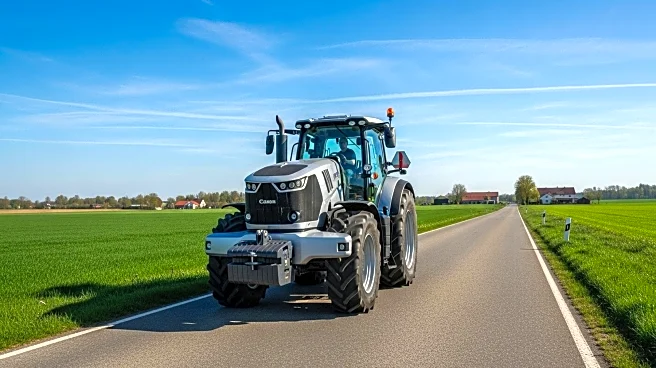What's Happening?
In Kansas, the Rural Autonomous Mobility Program (RAMP) is testing autonomous tractors on public rural roads. This initiative aims to address logistical challenges faced by farmers in transporting equipment between fields. At the Kelly Hills Field Day, a demonstration showcased a Sabanto autonomous tractor performing seeding tasks alongside drones. The program, led by Kelly Hills Unmanned Systems and Sabanto, involves collaboration with the Kansas Department of Transportation, Kansas Department of Agriculture, Nemaha County, and Kansas State University. The pilot seeks to develop policies and safety rules for autonomous tractors on rural roads, potentially revolutionizing farm logistics by reducing labor dependency and transport accidents.
Why It's Important?
The ability for autonomous tractors to operate on public roads could significantly impact the agricultural industry by improving efficiency and reducing costs. This technological advancement addresses labor shortages and logistical bottlenecks, allowing for continuous operation and minimizing downtime. The initiative could serve as a model for other states and international regions, promoting innovation in agricultural practices and enhancing productivity. The success of this pilot could lead to widespread adoption of autonomous technology in farming, transforming traditional methods and boosting economic growth in rural areas.
What's Next?
The pilot program will continue through 2026, with the goal of creating scalable models for other regions. If successful, it could lead to policy changes and infrastructure development to support autonomous farming equipment nationwide. Stakeholders, including farmers and industry leaders, will closely monitor the program's progress and outcomes, potentially influencing future investments in agricultural technology.









